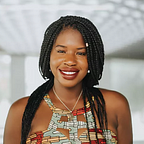Rethinking Education: Beyond the Classroom
On this Day of Education, let’s embark on a reflective journey to question our conventional notions of being educated. Are the children in rural villages, who have never stepped foot in a school but possess the profound ability to cultivate their own food, expertly fish, and identify every creature in their surroundings, any less educated compared to their urban counterparts who can recite times tables and write essays?
1. The Wisdom of the Land: Beyond Classroom Boundaries
True education extends beyond the confines of a classroom. It’s not just about academic achievements but about a holistic understanding of the world. Imagine the child in a rural village, their hands in the soil, learning the intricate dance of seasons, and cultivating crops. This is not just knowledge; it’s a deep connection to the land and a sustainable way of life.
2. Self-Sufficiency and Practical Skills: Life’s Essential Lessons
Education isn’t solely about mastering theoretical concepts; it’s about cultivating self-sufficiency and practical skills. Picture the rural child confidently casting a fishing net into the river, a skill that sustains them and their community. This is education in survival, independence, and a profound respect for the resources that nurture them.
3. Moving Beyond Standardized Metrics: Real Learning vs. Test Scores
Standardized metrics often fall short in capturing the essence of true education. The urban child excelling in academic tests is undoubtedly educated, but what about the practical, hands-on wisdom of the rural child? While the former is measured by scores, the latter’s education is measured by their ability to navigate and thrive in the real world.
4. Contextual Knowledge: Understanding the World Around Us
Education should be a reflection of the environment in which a child grows. The rural child’s knowledge of agriculture and wildlife isn’t abstract; it’s deeply rooted in their surroundings. In contrast, the urban child’s proficiency in a structured curriculum might lack the real-world context that shapes a comprehensive understanding of the world.
5. Holistic Learning: Celebrating Diversity in Knowledge
Let’s champion a holistic approach that appreciates diverse forms of knowledge. Both the rural and urban child bring unique strengths to the table. The rural child’s expertise in sustainable practices and environmental awareness complements the urban child’s formal education. Together, they create a more comprehensive and robust foundation for future generations.
On this Day of Education, let’s challenge ourselves to redefine what it truly means to be educated. It’s not an either-or scenario; it’s an inclusive celebration of knowledge in all its forms. Whether in a classroom or a rural field, education should empower individuals to understand, adapt, and thrive in their unique environments. Here’s to a future where education transcends boundaries, embracing the wealth of wisdom that diverse experiences bring.
